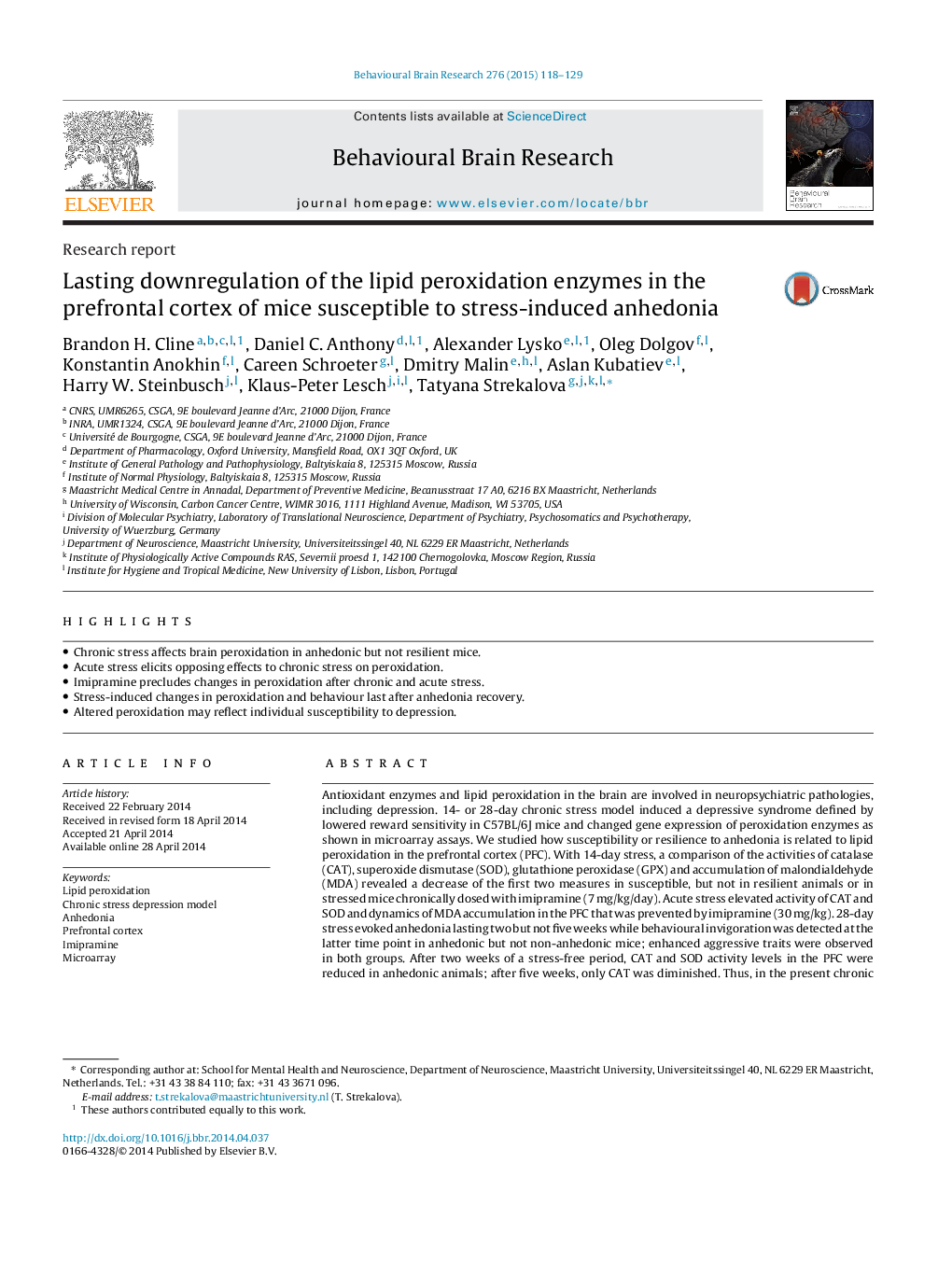| Article ID | Journal | Published Year | Pages | File Type |
|---|---|---|---|---|
| 6257438 | Behavioural Brain Research | 2015 | 12 Pages |
â¢Chronic stress affects brain peroxidation in anhedonic but not resilient mice.â¢Acute stress elicits opposing effects to chronic stress on peroxidation.â¢Imipramine precludes changes in peroxidation after chronic and acute stress.â¢Stress-induced changes in peroxidation and behaviour last after anhedonia recovery.â¢Altered peroxidation may reflect individual susceptibility to depression.
Antioxidant enzymes and lipid peroxidation in the brain are involved in neuropsychiatric pathologies, including depression. 14- or 28-day chronic stress model induced a depressive syndrome defined by lowered reward sensitivity in C57BL/6J mice and changed gene expression of peroxidation enzymes as shown in microarray assays. We studied how susceptibility or resilience to anhedonia is related to lipid peroxidation in the prefrontal cortex (PFC). With 14-day stress, a comparison of the activities of catalase (CAT), superoxide dismutase (SOD), glutathione peroxidase (GPX) and accumulation of malondialdehyde (MDA) revealed a decrease of the first two measures in susceptible, but not in resilient animals or in stressed mice chronically dosed with imipramine (7Â mg/kg/day). Acute stress elevated activity of CAT and SOD and dynamics of MDA accumulation in the PFC that was prevented by imipramine (30Â mg/kg). 28-day stress evoked anhedonia lasting two but not five weeks while behavioural invigoration was detected at the latter time point in anhedonic but not non-anhedonic mice; enhanced aggressive traits were observed in both groups. After two weeks of a stress-free period, CAT and SOD activity levels in the PFC were reduced in anhedonic animals; after five weeks, only CAT was diminished. Thus, in the present chronic stress depression paradigm, lasting alterations in brain peroxidation occur not only during anhedonia but also in the recovery period and are accompanied by behavioural abnormalities in mice. This mimics behavioural and neurochemical deficits observed in depressed patients during remission which could be used to develop remedies preventing their relapse.
